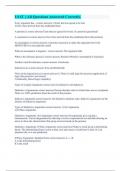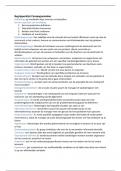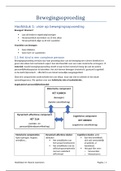Tentamen (uitwerkingen)
LSAT || All Questions Answered Correctly.
- Vak
- Instelling
Every argument has... correct answers 1) Facts that are agreed to be true 2) New facts derived from the established facts A premise is correct answers Facts that are agreed to be true. It cannot be questioned! A conclusion is correct answers New facts derived from the established facts (the ...
[Meer zien]





